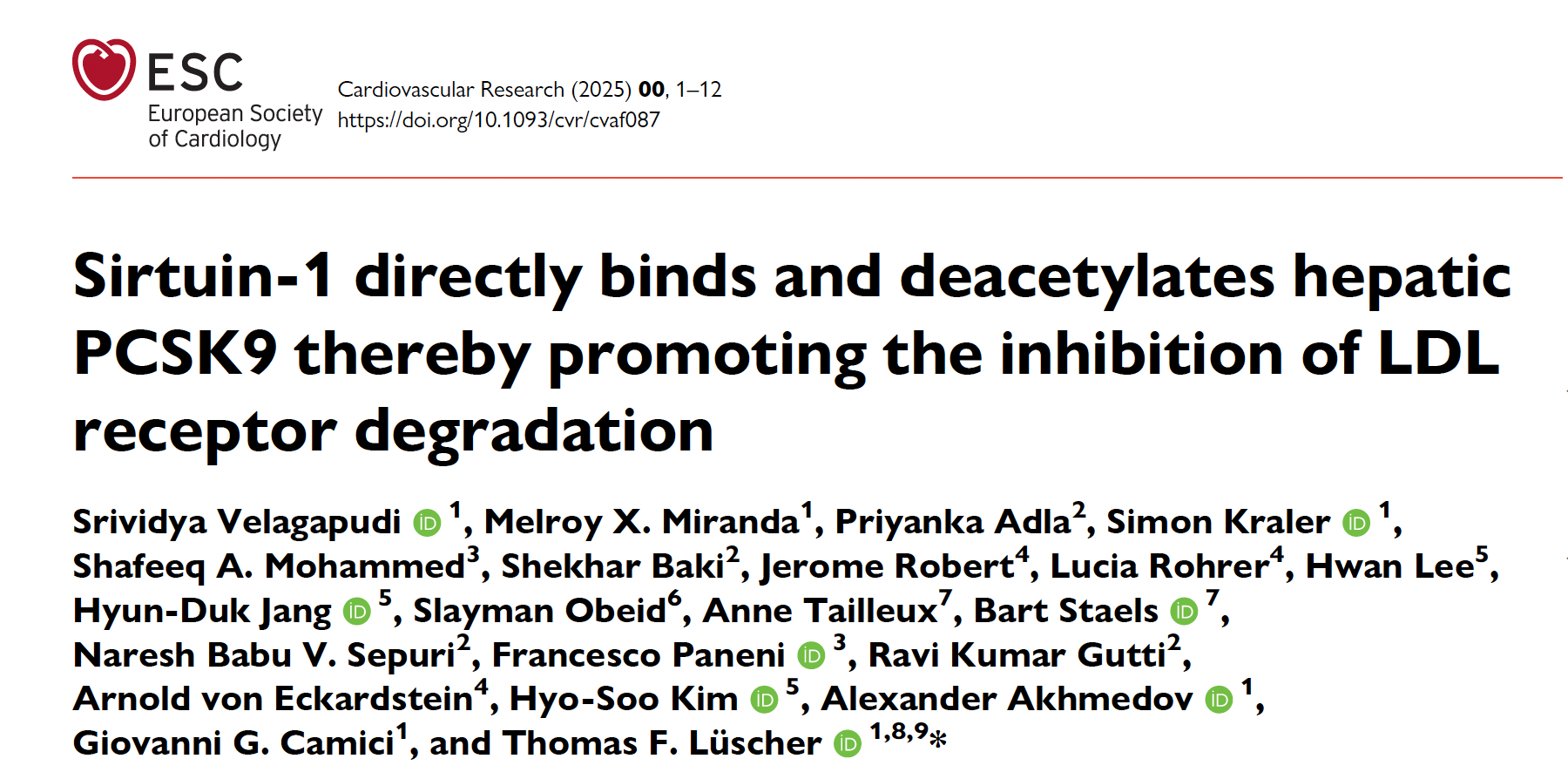Sirtuin-1 directly binds and deacetylates hepatic PCSK9 thereby promoting the inhibition of LDL receptor degradation

Low-density lipoprotein (LDL) cholesterol plays a causal role in the development of atherosclerotic cardiovascular disease (ASCVD). Activating the intracellular NAD⁺-dependent deacetylase Sirtuin-1 (SIRT1) through pharmacological means lowers plasma LDL-cholesterol levels by increasing the expression of hepatic LDL receptors (LDLR), a mechanism linked to protective effects against atherosclerosis.
A recent study published in Cardiovascular Research by Dr. Srividya Velagapudi and colleagues revealed that SIRT1 binds directly to hepatic PCSK9 and reduces its activity through deacetylation, thereby promoting LDL-cholesterol clearance via LDLR upregulation in the liver. Elevating circulating SIRT1 levels provides atheroprotective benefits in mice and high SIRT1 is associated with better outcomes in patients with established ASCVD.
Florian Wenzl